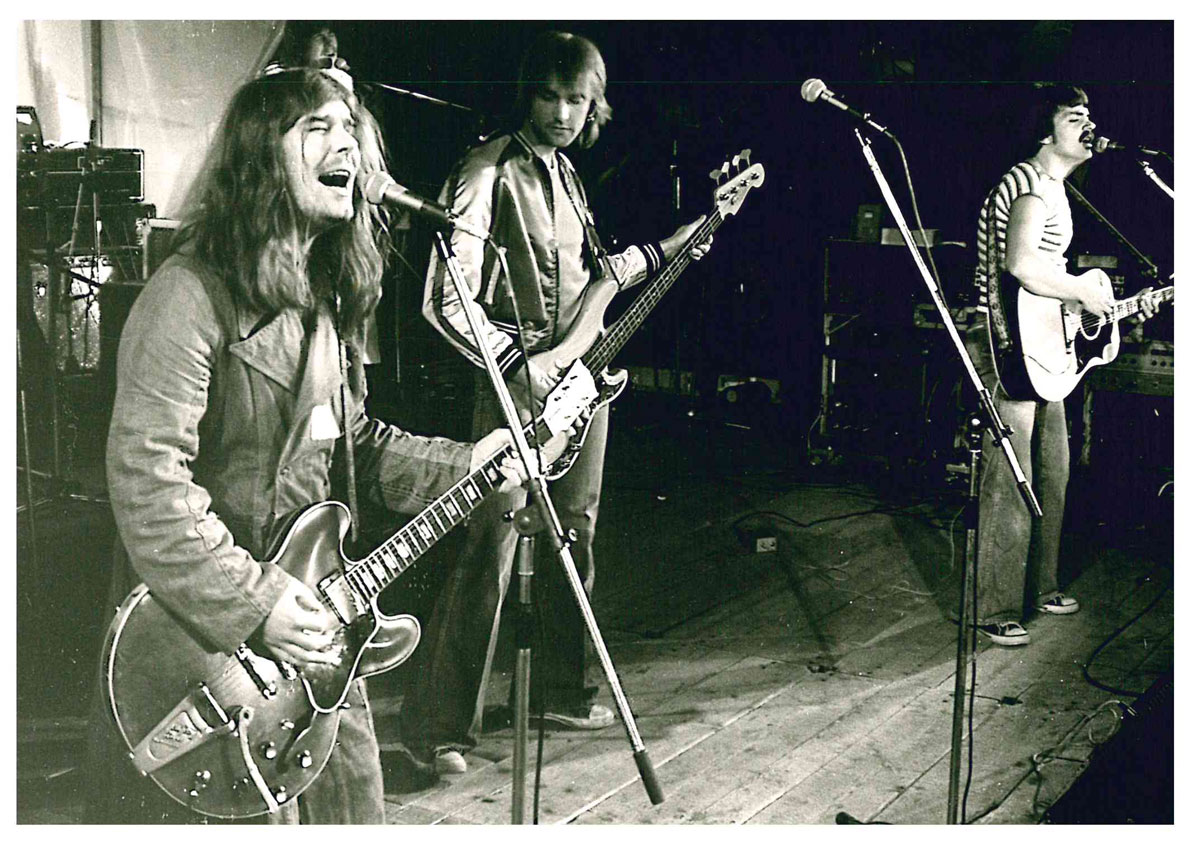To celebrate our 50th anniversary, we’ve asked some of the folk who’ve helped bring Greenbelt Festival to life over the last 50 years to write a little something about their festival experiences. One blog post per month, reflecting on one decade at a time.
Kicking things off is Jonathan Cooke, a former – and perhaps the first – Greenbelt Festival Administrator, with his personal reflections on the festivals beginnings in the 1970s.
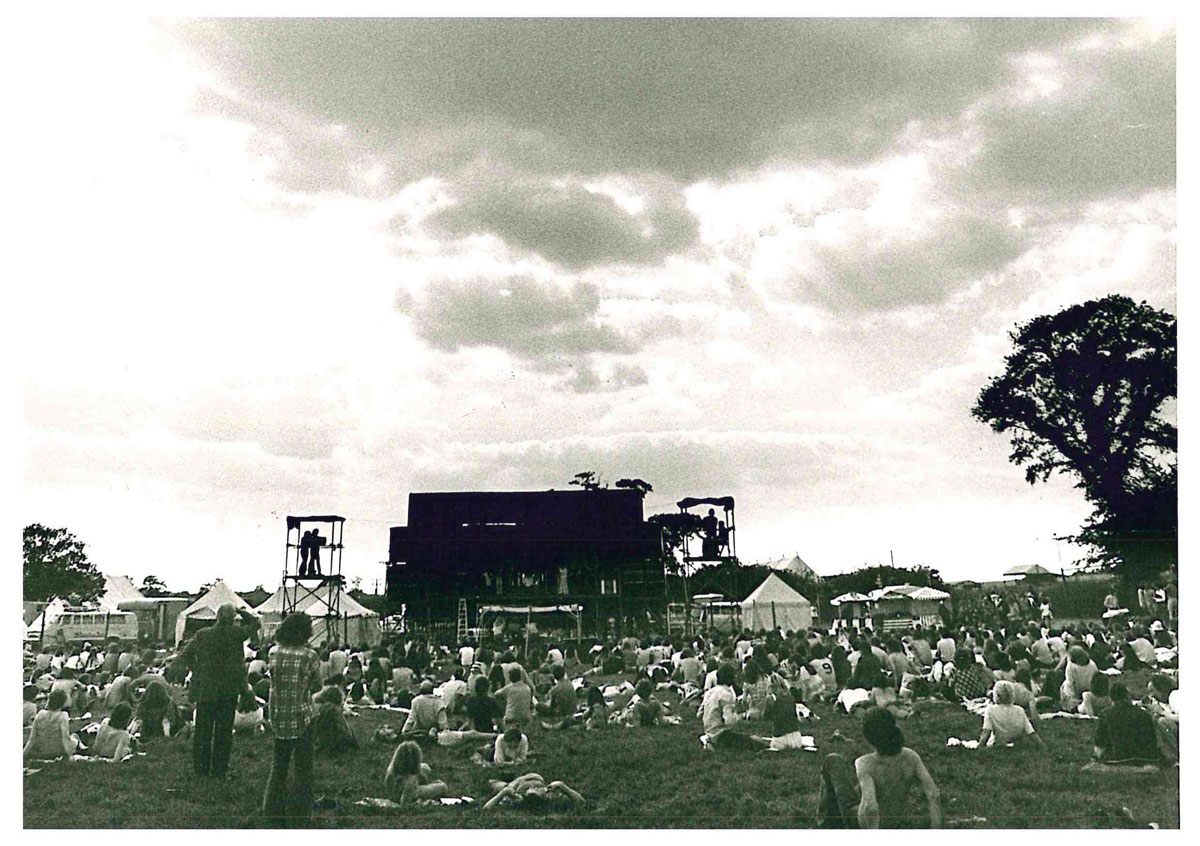
Greenbelt Festival, Mainstage, 1974
Years and years after I’d stepped down from working with Greenbelt, in the late 1990s, the then festival manager, Andy Thornton, told me that he thought I’d had the “golden years”. Looking back, he may have been right! But those first ten years of Greenbelt were an absolute rollercoaster of highs and lows.
Way back at the beginning, when festival founder James Holloway shared his festival dream (with the American producer of the touring Lonesome Stone musical) Jim Palosaari, Jim’s response had famously been: “If you’ve got a field, you’ve got a festival.” Of course, James knew full well he had a field. And so, from these naive beginnings, the ‘toddler’ Greenbelt began to stumble forward, growing fast, learning fast, but also making mistakes and throwing the occasional tantrum!
On James’ recommendation, I became festival administrator early on and remember those early years being a ‘bumpy ride’ financially. It was nail-biting to open the post in the last few days before a ticket deadline, as the decision of large parties of 20 to 50+ from church youth groups were our core audience, and they could make or break us.
Not surprisingly, losses were a regular occurrence. So the financial support of Kenneth Frampton and his Deo Gloria Trust was crucial to the festival’s survival. But, unfortunately, no one had really explained to him that Greenbelt was never going to be an evangelical event as he would have imagined it – and this caused much heartache and uncertainty in those early years, despite attendance growing. Which, you might have thought, should have reassured Kenneth that we were doing something right?
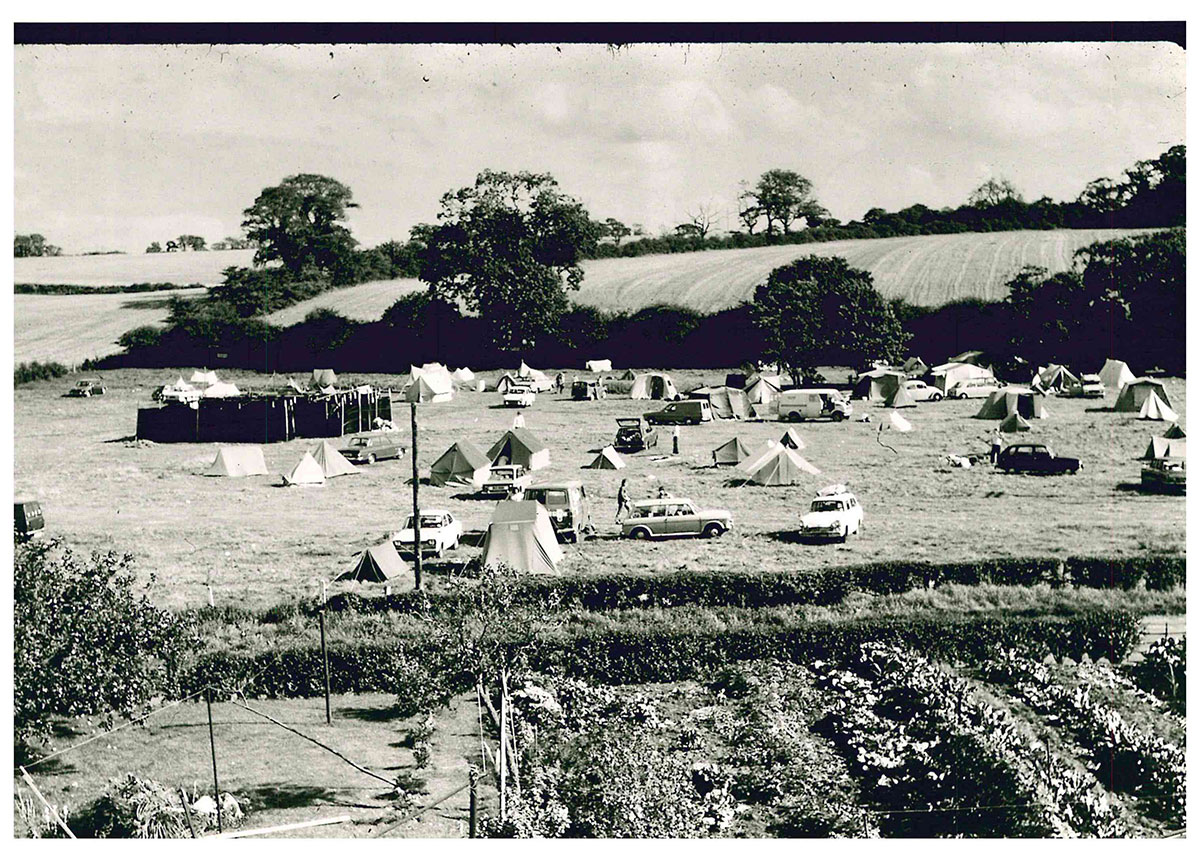
The first Greenbelt Festival campsite at Prospect Farm, Charsfield, Suffolk 1974
Across the 1970s, festivals became seen as more than just outdoor concerts, but as culturally significant events. And, although Greenbelt may have been a little ‘late to the party’, we got there on that front! There were other one-off festivals but they were notoriously chaotic, and Glastonbury and Reading (there was no Leeds) were the only two other regular large-scale summer festivals in the UK in those early days. So, with no viable festival circuit or sector to speak of, while you could hire marquees and cabins, everything else had to be literally built onsite – three weeks to build, two weeks to break down.
I may be biased, but there was a magic about our time at Odell Castle (our second festival site), partly because Lord Luke (the estate owner) was lovely; as was the local Police Chief: “give us a call if you have a stabbing, otherwise have fun!” Numbers went up each year and so many arrived on the gate one year that we couldn’t get them onto the site, so they camped beside the road for the first night. It really felt like we were at the centre of something special, part of a zeitgeist moment or movement, even.
Terms like ‘social justice’ were now being used by Christians who had begun to realise that they didn’t have to divide their lives into the sacred and secular and that there should be “no splits” (as Steve Shaw put it). We now had the courage and the platform to question everything, encouraging a grown-up faith that acknowledged the many grey areas in life – something you didn’t get chance to do in your average church at the time! It really did feel like we were part of making a brave new world, despite the state of the country and the government at the time!
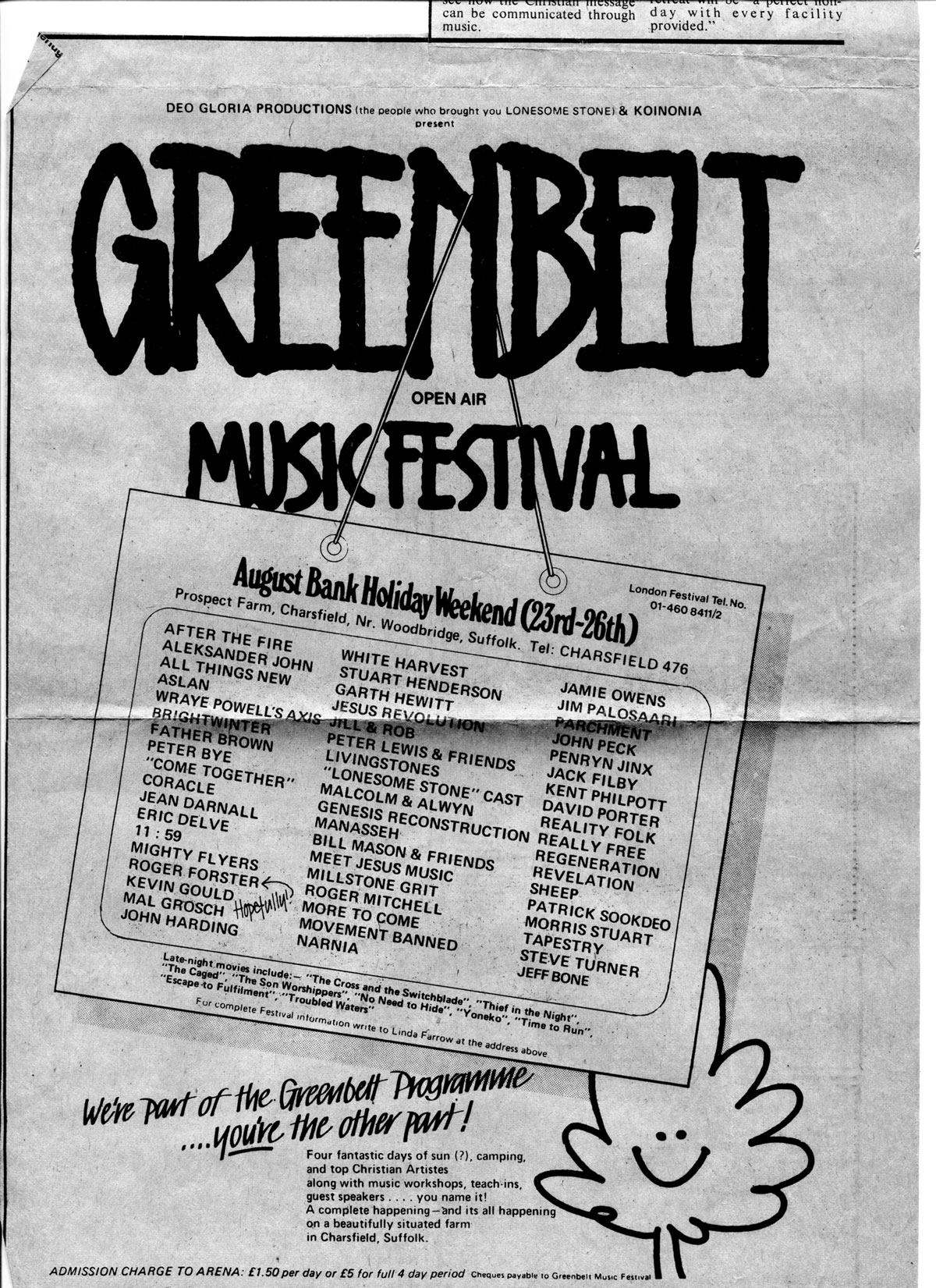
There are so many tales I could tell. Why was I making telephone calls to the US late at night from the site just days before the festival while sitting outside on the grass? Why did a well-meaning steward say that he would help me but “that’s why Jonathan Cooke makes these rules” when my car wouldn’t climb the wet slope, away from the gateway he had just refused to let me through?
But I’ll close with two particular memories from 1979 at the close of that first decade…
After many unsuccessful invitations, Cliff Richard eventually agreed to perform, only for me to make it a condition that he played his secular material as well as his Christian stuff (at the time he was doing two separate shows). I pointed out that the festival ethos was “no splits” and that there was only one Cliff Richard, wasn’t there? It was a bit arrogant, a bit cheeky, even a bit rude. But Cliff agreed, headlining on the Sunday, and including We Don’t Talk Anymore in his set, just hours after it had reached Number One in the charts, much to the delight of the crowd.
On the previous night, After the Fire (having recently signed to CBS Records) were headlining. Their set was being filmed and the crew had blown the band’s entire fee paying Le Maitre, the best in the pyrotechnics business, for something special to add to the show. The stakes were high. During the day, the pyrotechnics expert demanded we build a sand-bag-enclosed shelter with a tin roof for him to operate from and that we make a barrier around the stage front with tape (he said we must; to protect the crowd!). Meanwhile, he continued to trail cables everywhere for hours. But then it really kicked off, as the band were told by the festival board that they couldn’t use the pyrotechnics after all, due to a clause in the booking contract. I did my best to argue that the exact wording was “fireworks”, not “professional pyrotechnics”. But, with no agreement reached, I resigned as Festival Administrator, telling the pyrotechnics expert to keep going and for the crew to set- up, while I locked myself with the band in their cabin dressing room and called their bluff. In the end, the band played, the pyrotechnics looked great, and were so loud they shook most of Bedfordshire. But, hey, it’s only rock n roll. 😊
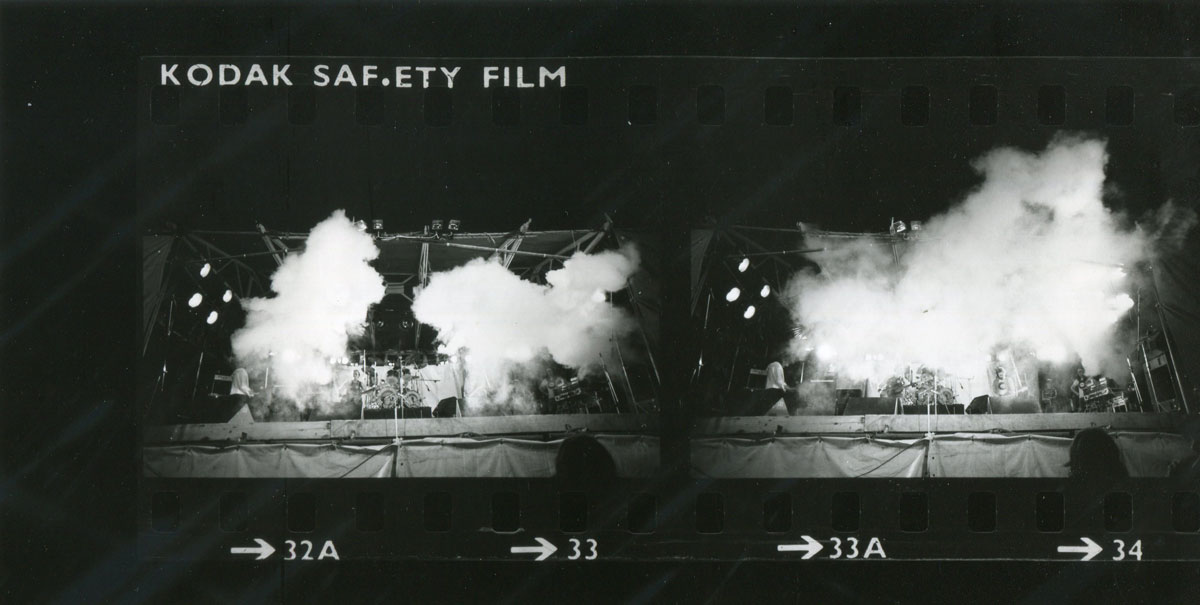
After the Fire, Greenbelt Festival, 1970s
PS: The next morning I reminded Graham Cray (then festival chair) that I’d resigned, but he just smiled and said he couldn’t remember me saying that. 😊


